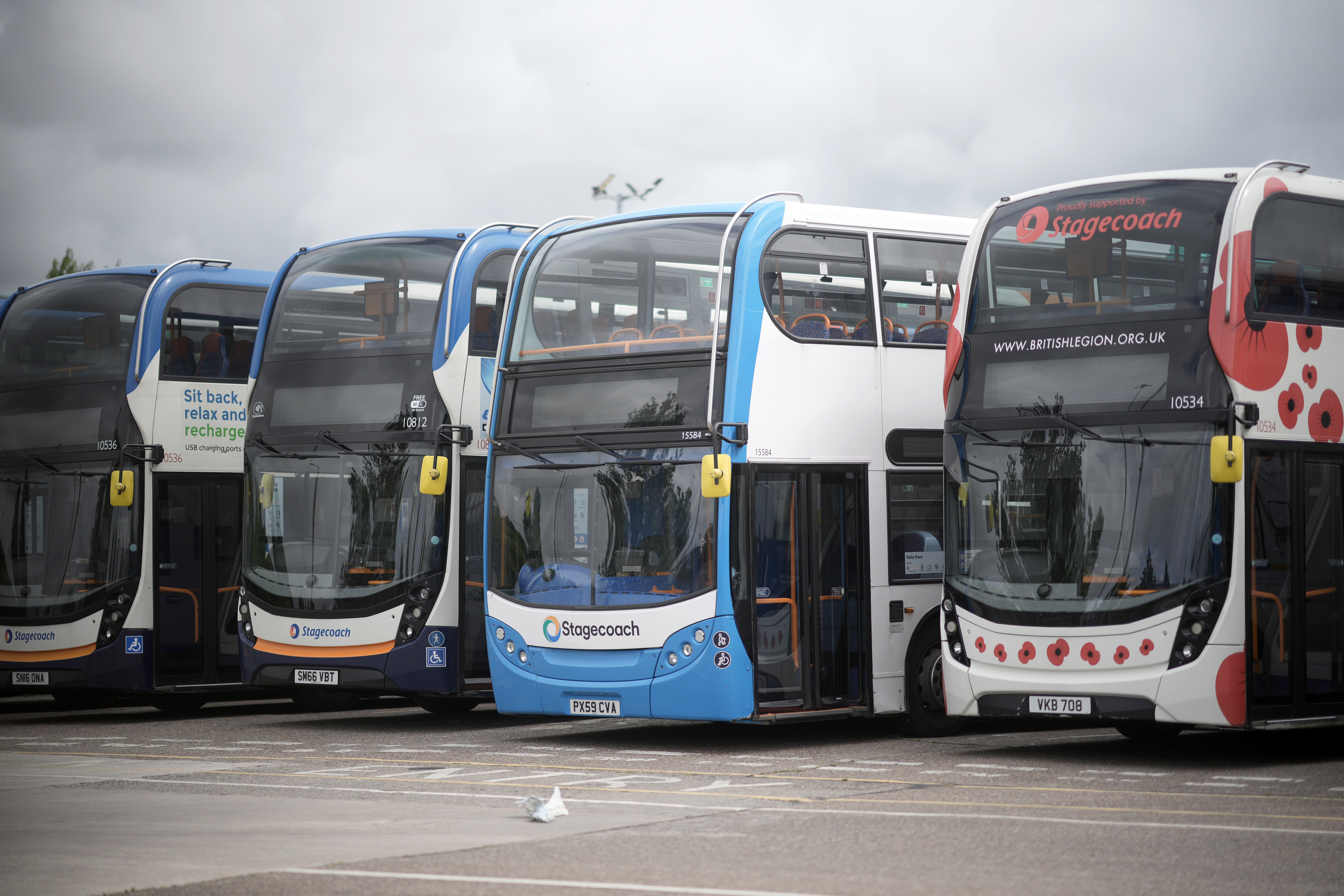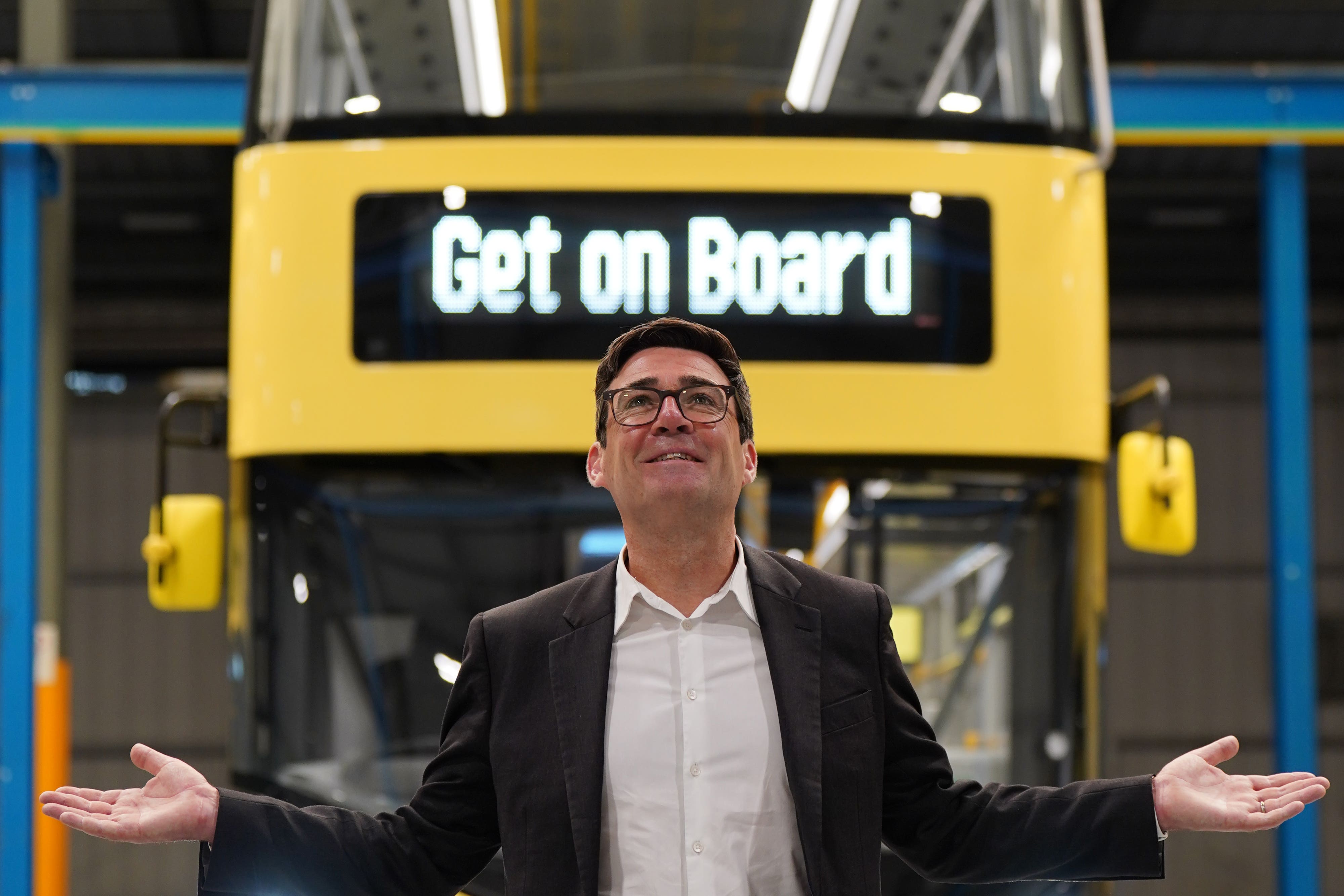Labour’s plan for buses explained as local authorities to ‘take control’
Bus models in London and Manchester could now spread across the UK

More local authorities will be given powers to take over buses in their regions as Labour sets its transport “revolution” into motion.
New measures unveiled by Louise Haigh will enable all local transport authorities to run their own bus services, following the models in place in London and Manchester.
The transport secretary says the plans mark the “biggest overhaul to buses in a generation.” The plans will greatly improve levels of bus service and boost declining passenger numbers, according to the Department for Transport (DfT).
Buses in the UK have largely been run by private companies since 1986, when they were deregulated by the Conservative government and sold off by local councils.
London authorities took over their bus services in the city in 2000, setting up Transport for London, while buses have been run by local authorities in Manchester since 2017.

Labour says the package of measures, which come as part of their ‘Buses Bill’, seek to fix “decades of failed deregulation” in the UK, adding that 300 million fewer miles have been driven by buses per year since 2010.
Ms Haigh said: “Buses are the lifeblood of our communities, but for too many people it has become impossible to rely on local services, as routes have been slashed and timetables hollowed out.
“Today is the first stop on our journey to delivering better buses across the country. After decades of failed deregulation, local leaders will finally have the powers to provide services that deliver for passengers.
“And we are taking steps to support local leaders to deliver improved bus services faster and cheaper than ever before.
“With local communities firmly back in the driving seat, our bus revolution will save vital routes up and down the country and put passengers first.”
How would Labour’s plan for buses work?
Proposed guidance from the DfT says that the new powers will give local authorities the powers to decide the “details” of local bus services. This is where they run, when they run and the standards of the services.
The main change Labour’s new legislation will bring in is expanding the number of authorities that are able to run bus services in their region. In 2017, the Bus Franchising Act enabled only mayoral combined authorities to run local bus services, similar to the TfL model.

Of these 11 combined authorities, Manchester was the first to start the process of bus franchising. All areas of the region are expected to be serviced by the authority’s ‘Bee Network’ buses by the end of 2024. Liverpool and West Yorkshire have since followed suit, with franchised services expected to start in 2026 and 2027.
The example of bus franchising in Manchester shows that the process is not a short one. The move was first subject to an assessment from the authority’s transport division, followed by an independent audit.
Consultations than ran from 2020 to 2021, partially disrupted by Covid, with 82 percent of respondents voting in favour. Finally, all ten local authority members of the Manchester combined authority had to vote on the measure, with nine in favour.
All this groundwork means it will have taken seven years from Manchester’s bus franchising announcement to the final rollout of the plans, which was done in three tranches across different regions.
This model will likely lead as an example for other authorities who elect to begin bus franchising in their regions.
Join our commenting forum
Join thought-provoking conversations, follow other Independent readers and see their replies
Comments
Bookmark popover
Removed from bookmarks